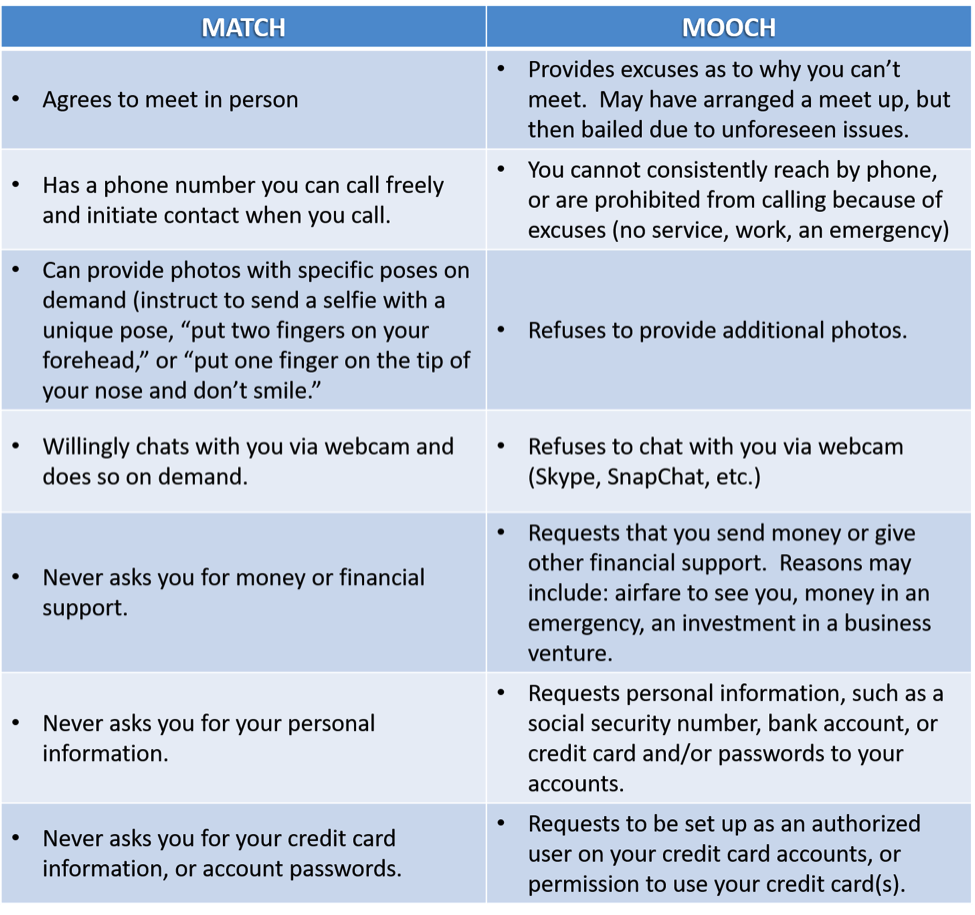Too often, Vermonters reveal to us that a scammer lied to them about being in a long-distance relationship. These scams can be heartbreaking. They are not uncovered until the love interest asks for money—or once money gets sent. Sent money can’t be retrieved, making the betrayal more painful.
 Vermonters lose tens of thousands of dollars each year to romance scams. This scam continues to affect more people than other wire transfer scams. So, what’s going on?
Vermonters lose tens of thousands of dollars each year to romance scams. This scam continues to affect more people than other wire transfer scams. So, what’s going on?
Most romance scams initiate through dating websites and apps, like Match, Zoosk, Senior People Meet, OK Cupid, and Meet Me. Connecting online and through apps makes it easy for scammers to hide their identity. You could be chatting daily with a person who describes themself as “tall, dark, and good-looking”—but is not. Scammers succeed because online dating gives the option of communicating without ever meeting in person, or talking on the phone.
Not all online dating is bad. In fact, Consumer Reports found in a survey that 44% of respondents said online dating led to a serious long-term relationship or marriage. With such high odds in finding “the one,” how can you continue to use online dating and stay safe when looking for love?
We’ve created a table to help you determine if you’re being contacted by a MATCH or a MOOCH.

In 2016, a law was passed that requires internet dating services to notify Vermont members of noticeable changes in their account, such as when their account is hacked and being used maliciously by a romance scammer. Internet dating services must also alert Vermont members who had previously corresponded with a newly banned member, letting them know they may have been contacted by a romance scammer. So this Valentine’s Day, protect yourself from romance scams and find a match, not a mooch.
Contributing Writer: Crystal Baldwin
